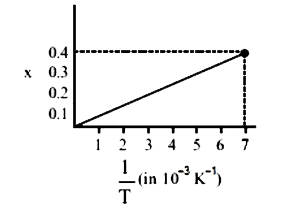According to Curie's law, the magnetic susceptibilty of a paramagnetic substance at an absolute temperature T is proportional to
A
1/T
B
T
C
1/T2
D
T2
Video Solution
Text Solution
The correct Answer is:A
Curie law χm∝1T
|
Topper's Solved these Questions
- NEETBOOK - NEET PREVIOUS YEAR (YEARWISE + CHAPTERWISE)CHAPTER - NEETEXERCISE - PHYSICS
157 Videos
- NEETBOOK - NEET PREVIOUS YEAR (YEARWISE + CHAPTERWISE)CHAPTER - NEETEXERCISE - QUESTION
95 Videos
- MOTION IN TWO AND THREE DIMENSIONBOOK - NEET PREVIOUS YEAR (YEARWISE + CHAPTERWISE)CHAPTER - MOTION IN TWO AND THREE DIMENSIONEXERCISE - All Questions
47 Videos
- NEET 2020BOOK - NEET PREVIOUS YEAR (YEARWISE + CHAPTERWISE)CHAPTER - NEET 2020EXERCISE - All Questions
45 Videos
Similar Questions
Knowledge Check
Magnetic susceptibility of a paramagnetic substance:
Ais independent of temperatureBincreases with decrease of temperatureCattain the maxima at null pointDincreases rapidly above Curie temperatureMagnetic susceptibility of a paramagnetic substance is
Alarge and positiveBsmall and positiveCsmall and negativeDlarge and negativeAccording to Curie's law, the magnetic susceptibilty of a paramagnetic substance at an absolute temperature T is proportional to
ATB1/T2CT2D1/T
How does the magnetic susceptibility (x) of a paramagnetic substance change with absoute temperature T?
View SolutionThe magnetic susceptibility of any paramagnetic material changes with absolute temperature T as
View SolutionThe magnetic susceptibility of ant paramagnetic material changes with absolute temperature T as:
View SolutionThe magnetic susceptibility of ant paramagnetic material changes with absolute temperature T as:
View SolutionMagnetic susceptibility of diamagnetic substances depends upon the absolute temperature T as
View Solution

